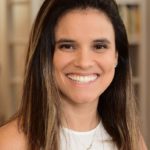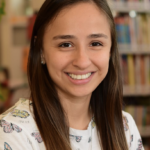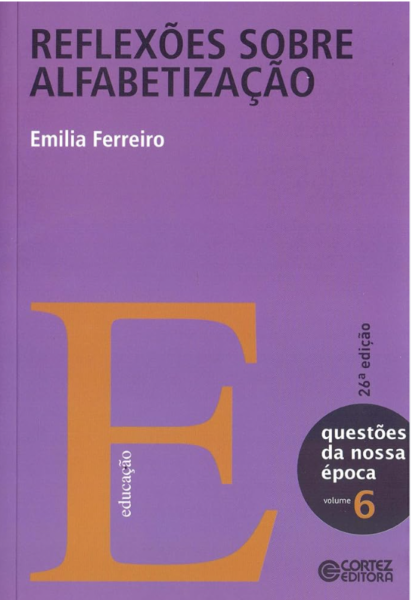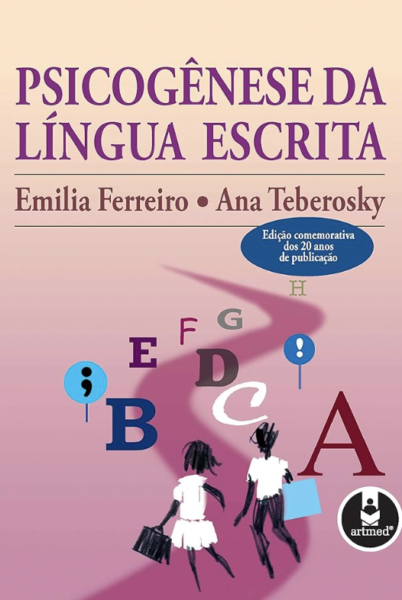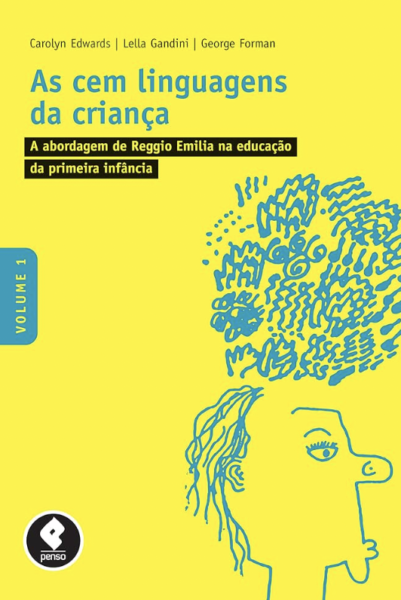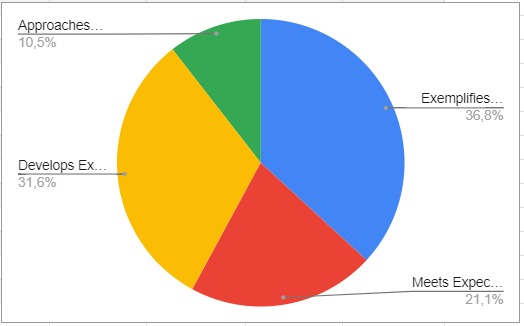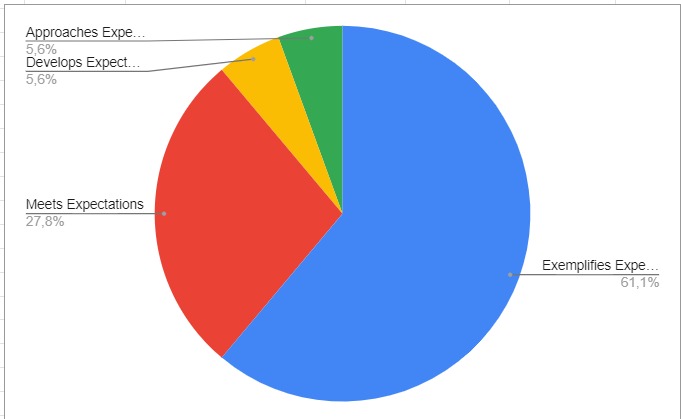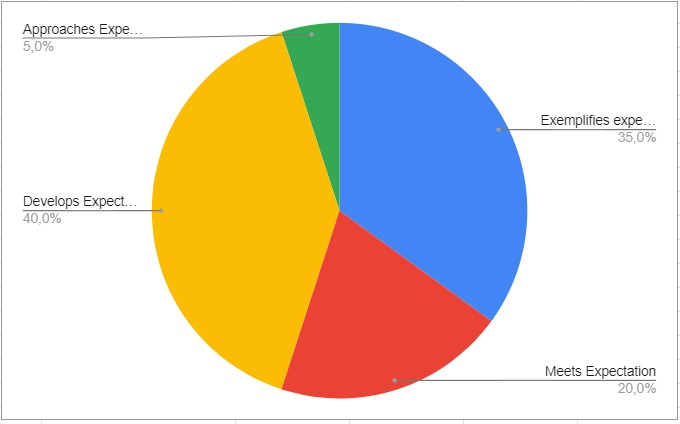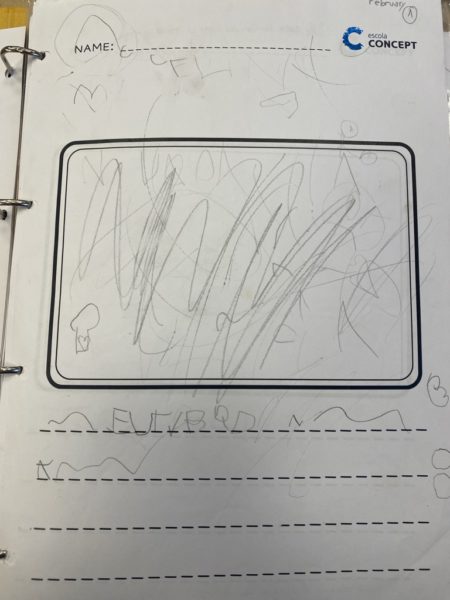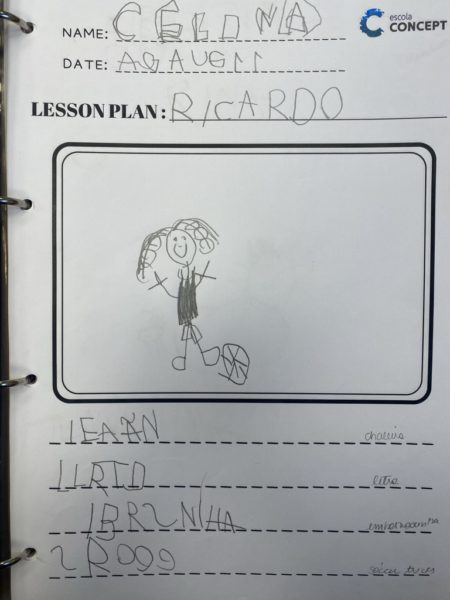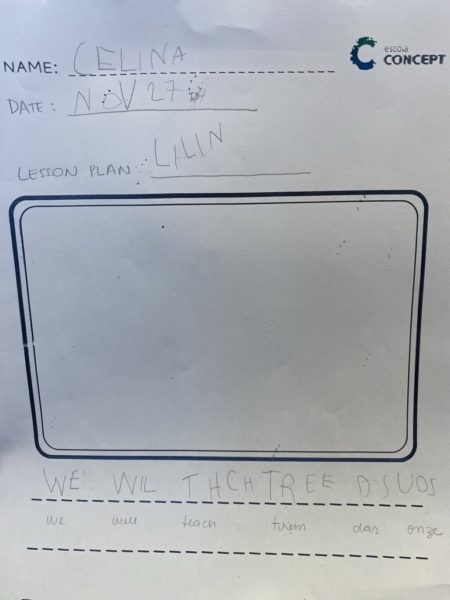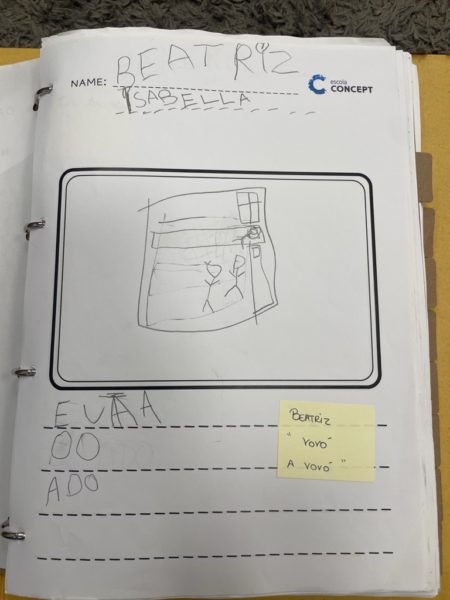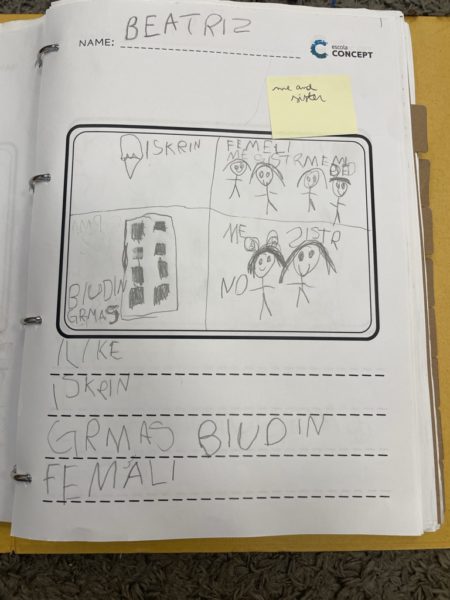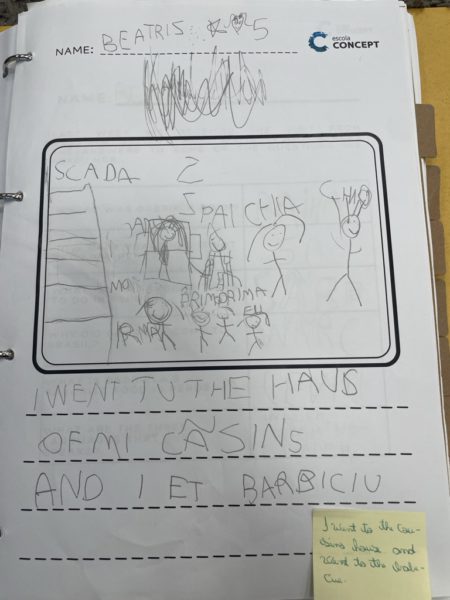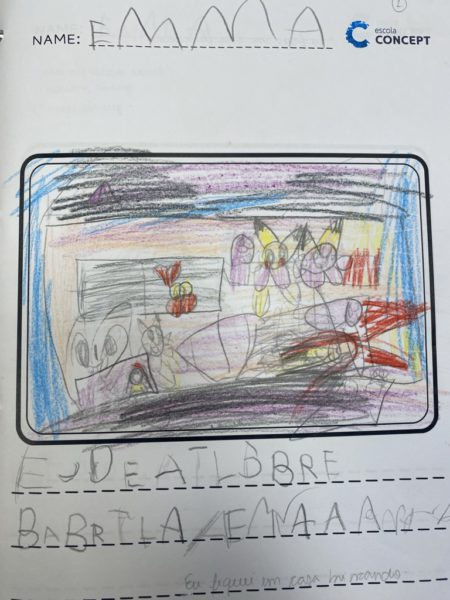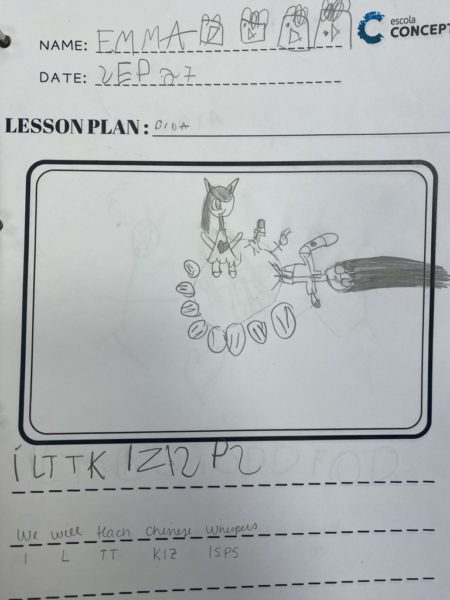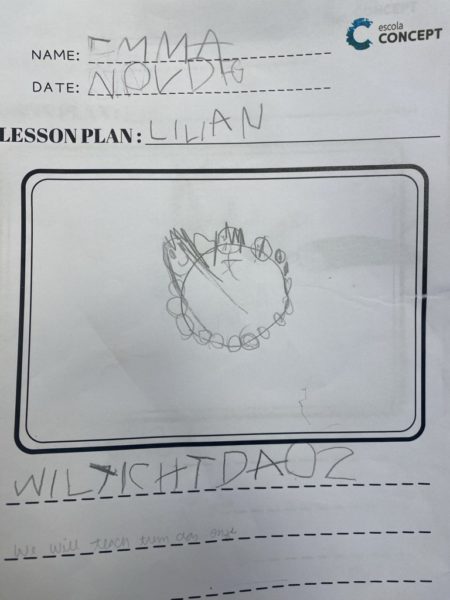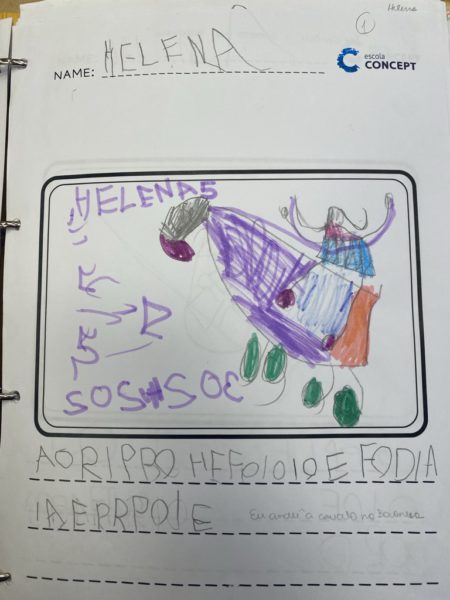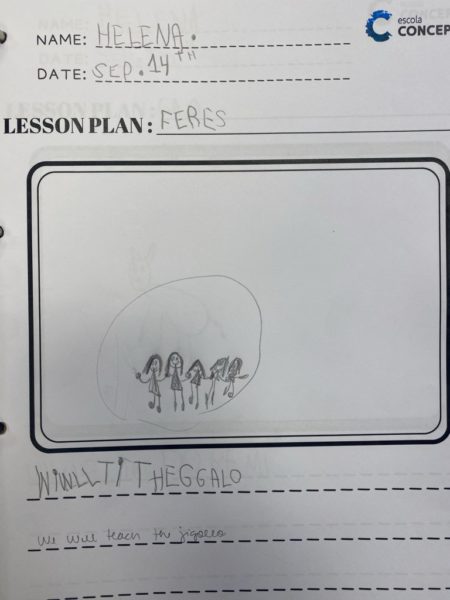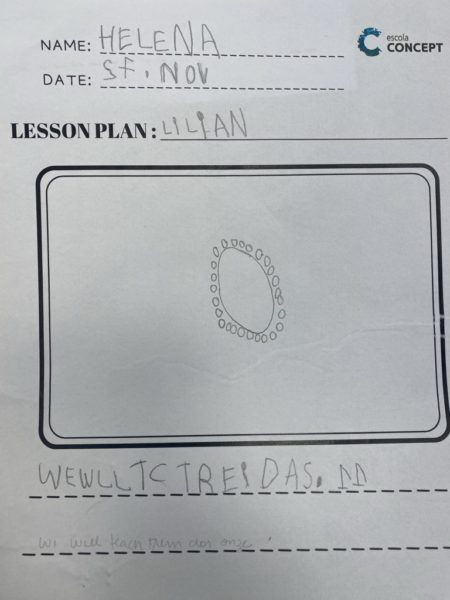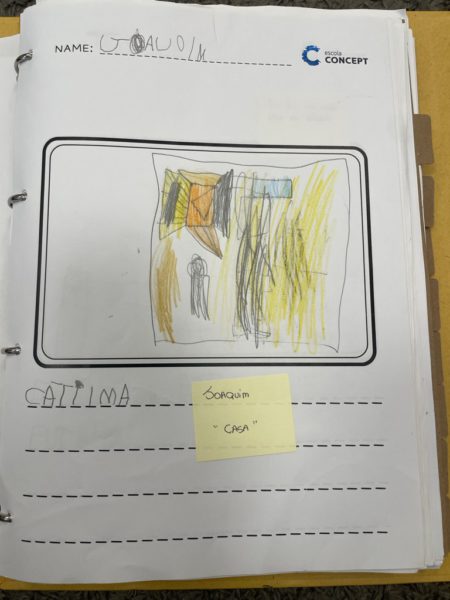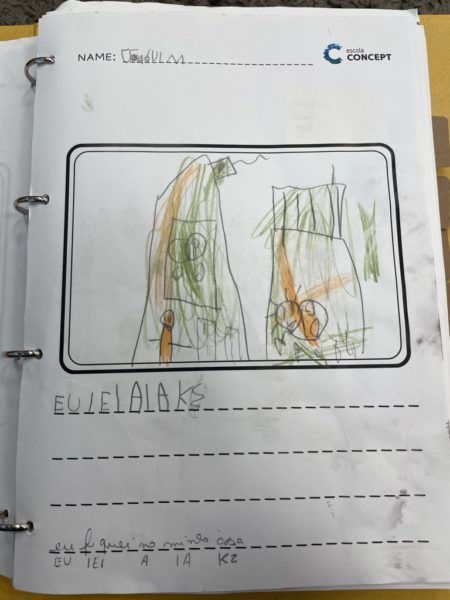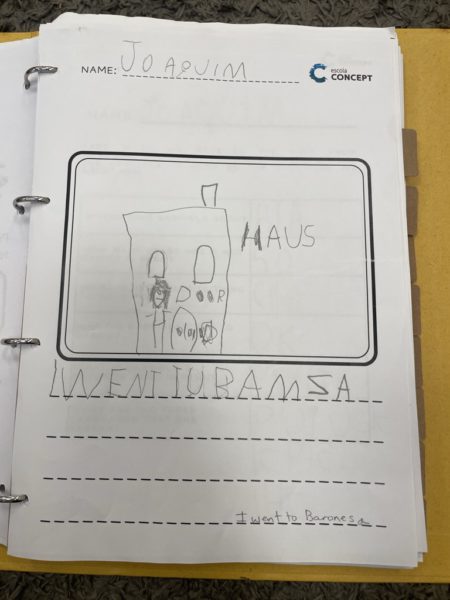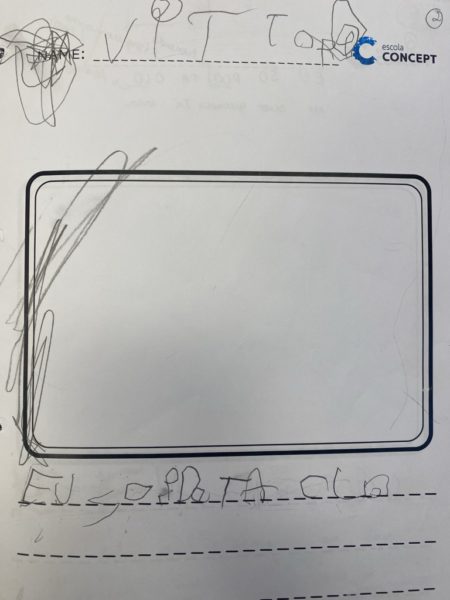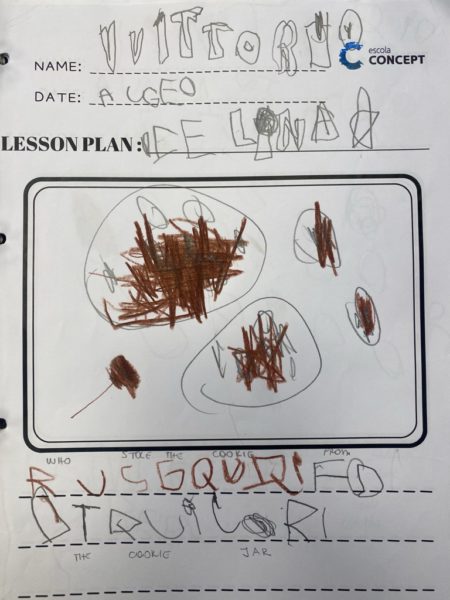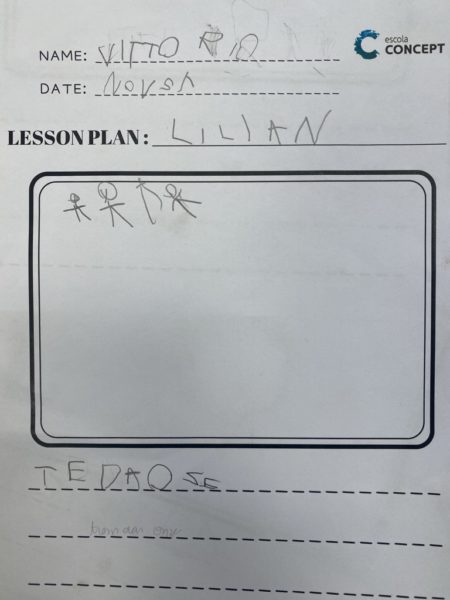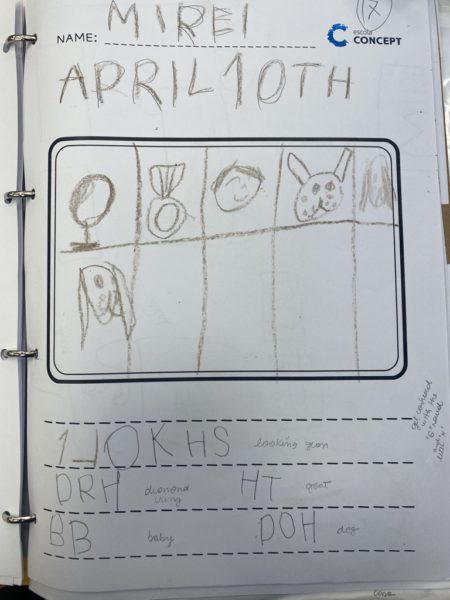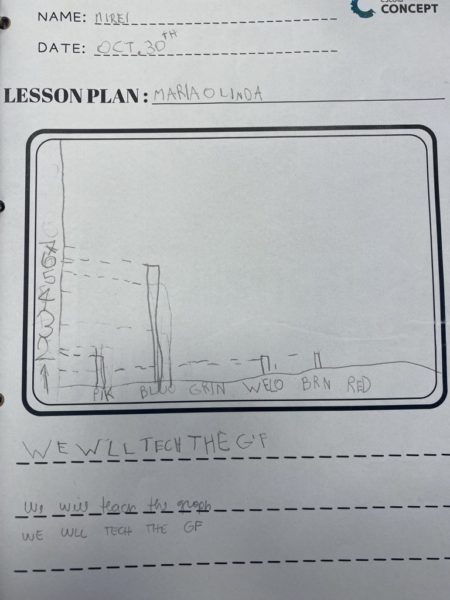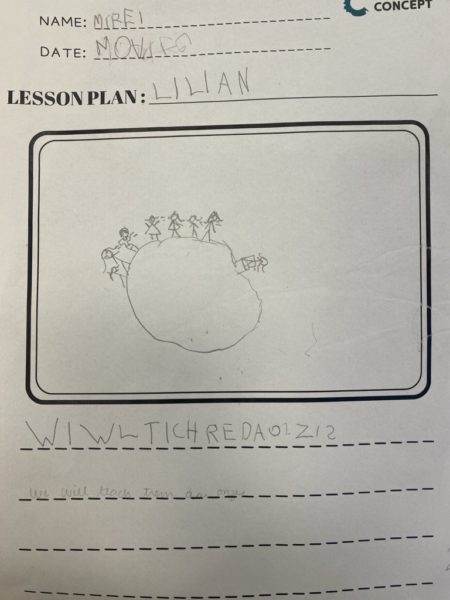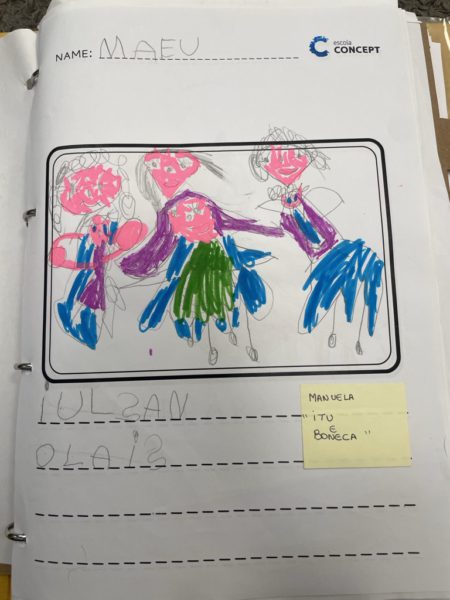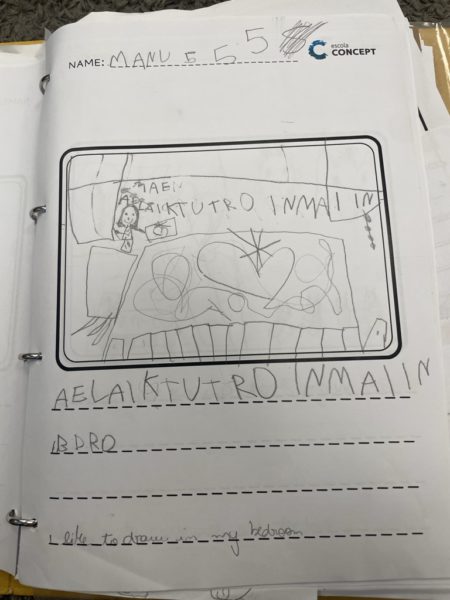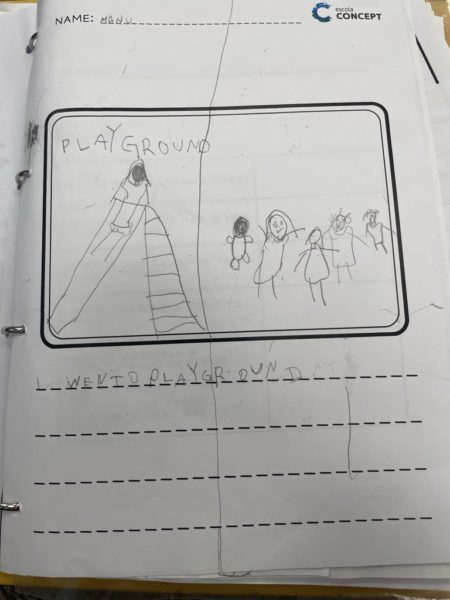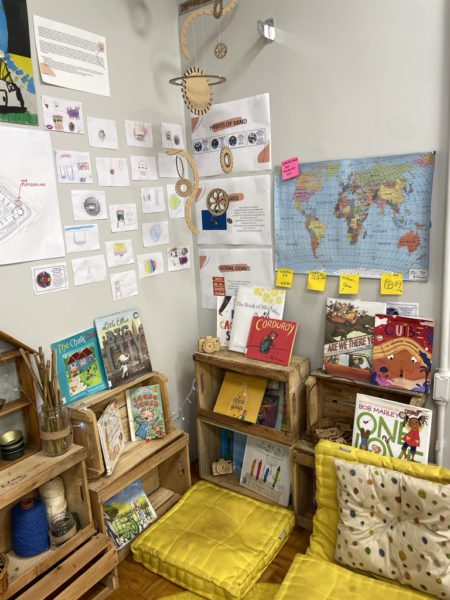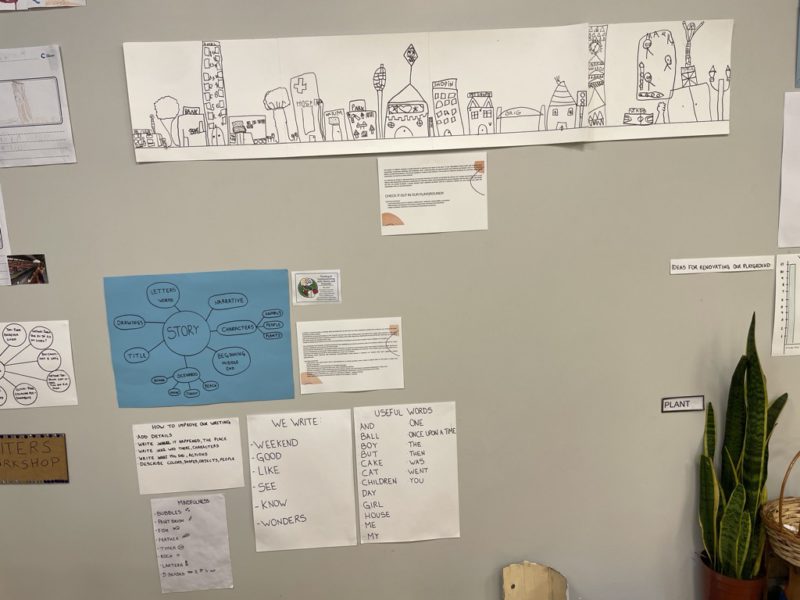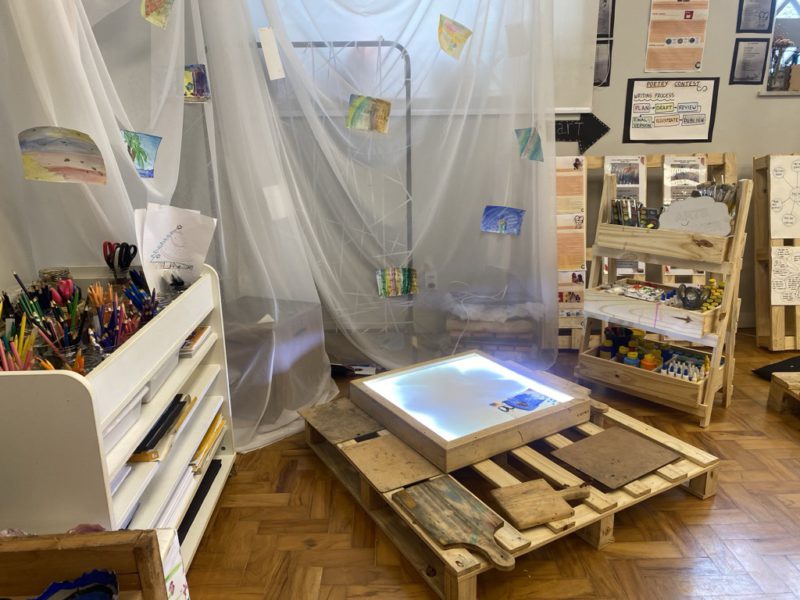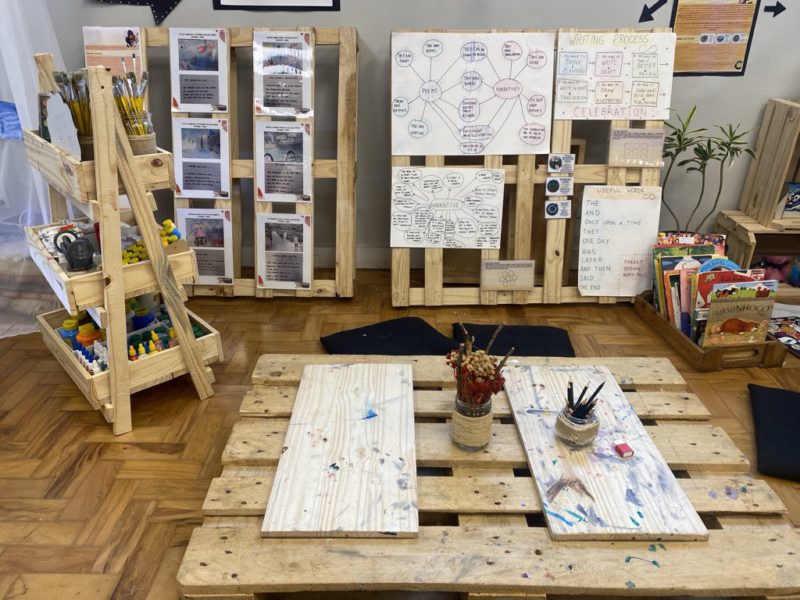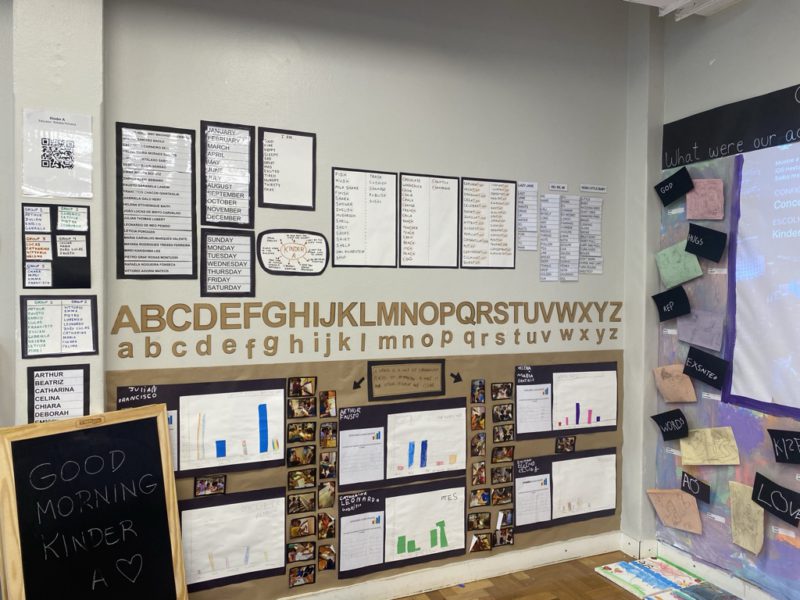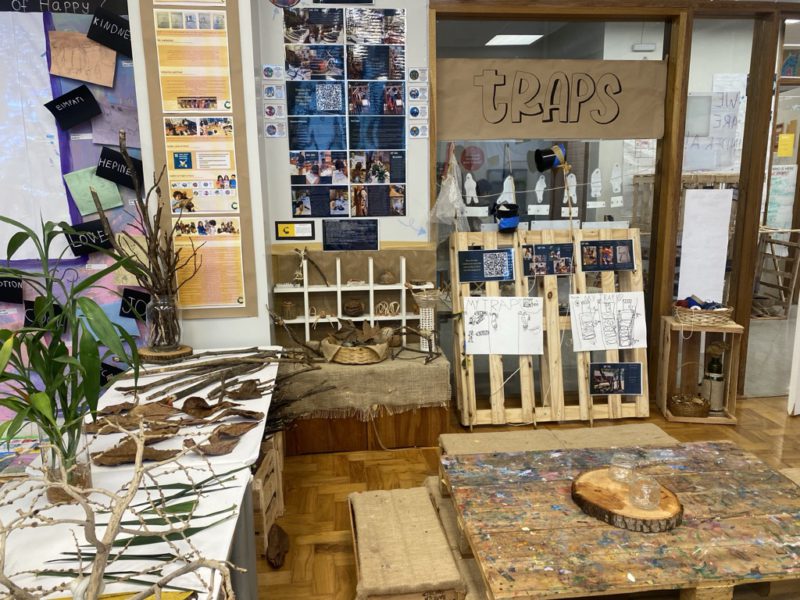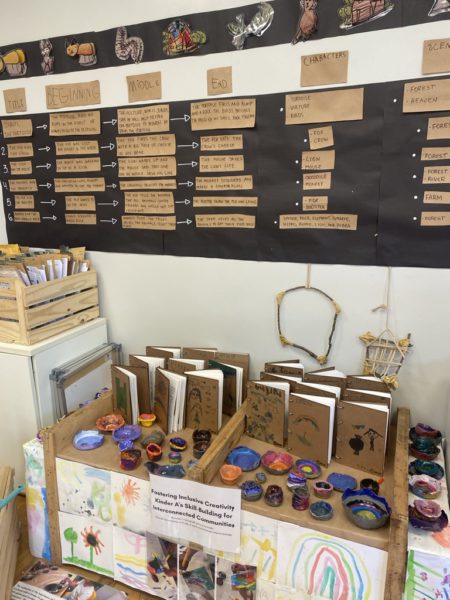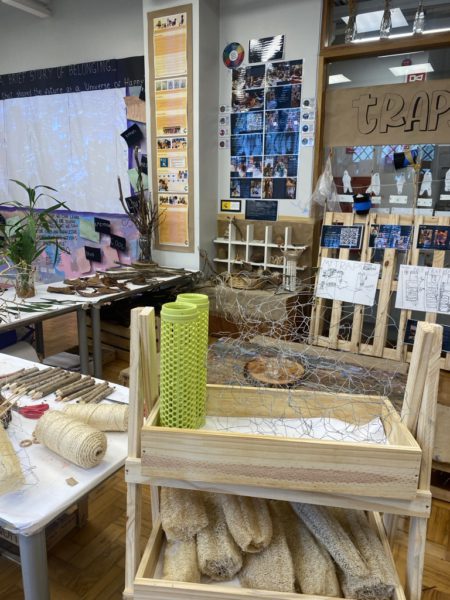Exploring Natural and Reflective Foreign Language Writing Engagement in 5-Year-Old Learners
Is it possible to engage 5-year-old learners in writing in a foreign language naturally and reflectively?
General topic of interest
At the heart of our investigation paths lies a profound commitment to fostering holistic development, guided by the words of Loris Malaguzzi, who once said, "Our task is to help children communicate with the world using all their potential, strengths, and languages, and to overcome any obstacle presented by our culture." This resonates deeply with our approach. At Escola Concept São Paulo, we provide our learners with meaningful literacy practices inspired by Reggio Emilia’s insights and in a Project-Based Learning (PBL) context. Having this in mind, we intend to foster a dynamic, holistic, and innovative approach to education in the 21st century. In this setting, learners engage in reading and writing not as isolated skills, but as integral components of real-world projects and inquiries. This way we promote the application of literacy in authentic scenarios, encouraging learners to research, analyze, and communicate their findings through various modes of expression. It emphasizes critical thinking, problem-solving, and collaborative communication, all of which are crucial literacy skills.
Participants
19 learners from Kinder A
19 learners from Kinder B
Literature Review
- FERREIRO, Emilia; TEBEROSKY, Ana. Psicogênese da língua escrita. Tradução Diana Myriam Lichtenstein, Liana Di Marco e Mário Corso. Porto Alegre: Artmed, 1985a
- Reflexões sobre alfabetização. São Paulo: Editora Cortez,1985. KAUFMAN, Ana Maria; CASTEDO, Mirta; TERUGGI. Lilia & MOLINARI, Claudia.
- As cem linguagens da criança: a abordagem de Réggio Emilia na educação da primeira infância. Porto Alegre: Artes Médicas Sul Ltda.,1999,
Data collecting approach
We will use pre and post (February to November 2023) proposals to compare children's progress.
Data collection tools/resources
The writing proposals, distributed in three distinct periods of the year, will enable us to track changes in learners attitudes and reflections over time, offering valuable insights into their development.
Emerging results
Throughout our investigative journey, guided by the interests, questions, and curiosities of our learners, we fully integrate our kids’ writing practices into the topics we are exploring, lending purpose and meaning to their learning experiences. This approach naturally leads to reflective writing, as learners record their findings and contemplate the significance and implications of what they've discovered. In this research-based environment, our young learners are active researchers who are constantly encouraged to seek answers to their inquiries. That's why you'll find our learning space walls equipped with contextually meaningful lists, representing the collective investigative paths of the group. This is also something interesting… if you visit Kinder A’s learning space you will find specific lists, art pieces, productions, material, and even furniture arrangements that only this room has. Also, if you then go to Kinder B’s room, you will notice that the room is visually quite different, yet filled with meaning for the group itself. The context, transformed into a possibility through the actions and partnership established between children and adults, was experienced collectively through the productions and relationships with space.
Just so you know the investigative paths each group is following:
In a few words, Kinder A/2023 started with the investigation of the passage of time and the marks it leaves in nature and our bodies, and this led the group to research the past, present, and future. When the topic “future” came aboard, we intended to answer the guiding question: "What Actions Can Shape the Future as a 'Universe of Happy’?” (J. 5 years old). On the other hand, Kinder B has shown curiosity about nature. On a daily basis, we observed our learners interacting with the insects found on campus, analyzing them closely and expressing their ideas. This movement has allowed rich spontaneous discussions with hypotheses about where bugs live, what they eat and how nature elements appear, their colors, smells, and textures.
Having noticed that the same grade level has gone through totally different investigative paths, we wonder - Is it possible to engage 5-year-old learners in writing in a foreign language naturally and reflectively? And our answer is YES! It is indeed possible to engage 5-year-old learners in writing in a foreign language naturally and reflectively. Through our innovative and immersive approach, we've witnessed their growth and enthusiasm. They are actively and authentically engaged in writing, embracing the foreign language as a natural extension of their communication toolkit.
Considering how important it is for children to understand writing as a tool for learning, we aimed to connect our investigations with our writing moments. Learners were invited to think about the fact that writers are like scientists and we can write down our observations. We tried to capture what we see by observing, labeling and writing. Praising their remarkable ability to see the world, they were motivated to try to register their thoughts, wonders, ideas and observations.
Our approach is enriching, demonstrating the potential of each learner. It is also important to mention that we recognize the unique needs and capabilities of each of our young learners, and our interventions are carefully designed to align with the opportunity for growth of each child, through differentiated instruction. As we have said before, our learning spaces are transformed into natural language environments that are organized in a provocative and stimulating way. This rich, language-filled environment ensures that the learning process becomes an integral part of their daily experiences.
As we move forward, we aim to refine and expand our approach, continually adapting to the needs and interests of our young learners. Our research journey doesn't end here; it serves as a foundation for further exploration, including the assessment of long-term language development and the potential for applying this approach in diverse educational contexts.
Reflections
Through our shared experiences with our 5-year-old learners, we've discovered that their capacity for reflective writing in a foreign language is not only possible but is a captivating journey filled with curiosity, wonder, and endless possibilities. It reinforces our commitment to nurturing young minds and empowering them as effective communicators and lifelong learners, as we said before.
By actively listening to our children, documenting, reflecting, pre-figuring contexts, relaunching sessions, developing the investigations, and culminating their learning, we can witness their growth surrounded by enthusiasm, happiness, and pride. This brings us, as educators, the feeling of accomplishing our school’s mission: Escola Concept offers an academically rigorous, challenging, inclusive, global education designed to develop happy and thoughtful human beings who positively impact the world we live in.
